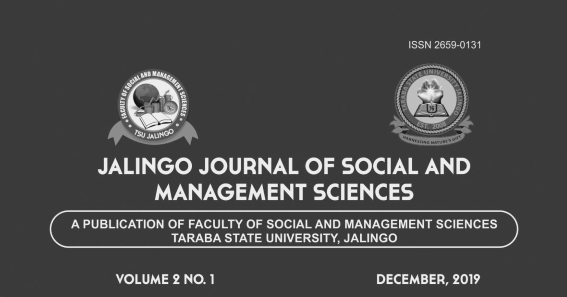Political Leadership and Corruption in Nigeria’s Fourth Republic
Keywords:
Political Leadership, Corruption, ICPC, EFCC, Fourth Republic, NigeriaAbstract
The study examines political leadership and corruption in Nigeria. One of the greatest threats to socio-economic and political development of any nation is corruption. Democracy, on the other hand, is based on the will of the people and it is generally agreed that it is the best form of governance suited for allowing people to live in dignity and freedom. With huge resource expansion, unparalleled and unprecedented corrupt practices, it is unthinkable to expect democracy to thrive and derive dividend therein. Nigeria, a country richly endowed with natural resources and high quality human capital is yet to find its rightful place among the comity of nations. A major reason that has been responsible for her socio-economic stagnation is the phenomenon of corruption. The kernel of the study rests on the fact that political leadership and corruption are interwoven and it is against this background that it examines the corrupt tendencies of the political leadership class in Nigeria and its implications for socio-economic development. The study adopts secondary sources of data collection for overall understanding of the subject matter. Writings were accumulated from works of researchers in the territory of examinations under audit. The study contends that for corruption to be reduced in Nigeria, the constitution should be reviewed in such a way that all pro-corruption clauses should be removed from it. For example, the “immunity clause” which protects people in power from being prosecuted while in office has not only hindered effective prosecution of corrupt public and private officials in Nigeria, it has also made corruption to thrive.

Downloads
Published
Issue
Section
License
Copyright (c) 2023 JALINGO JOURNAL OF SOCIAL AND MANAGEMENT SCIENCES

This work is licensed under a Creative Commons Attribution-NonCommercial 4.0 International License.
